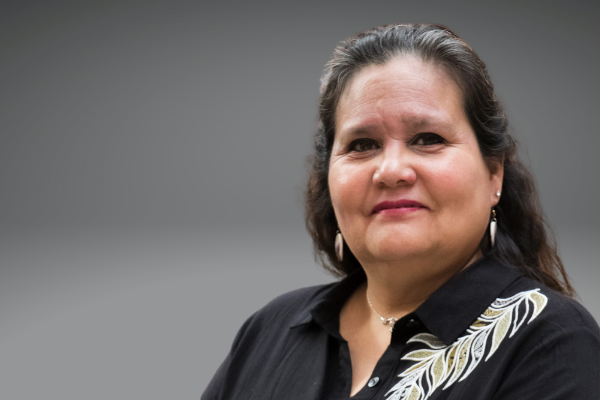
Brayden Bushby was convicted last December in the death of Barbara Kentner, a member of Wabigoon Lake First Nation. In 2017, Kentner was struck by a trailer hitch thrown from a moving vehicle. On Monday, Bushby was sentenced to eight years in prison.
Acting Dean Beverly commented on the sentencing, suggesting the abolition of peremptory challenges was cosmetic and that the criminal legal system needs to be reenvisioned in ways that are not inherently adversarial. “It’s a game,” she says, referring to the theatre of clashing narratives and cross-examination at play in Canadian courtrooms. “It’s a game between the defence counsel and the Crown attorneys.”
Bill C-75 may be of some help, she allows, but it doesn’t address a colonial process that’s been forced upon Indigenous people or the way the system can dehumanize victims. “The whole system,” she says, “was designed to try to erase Indigenous people from the beginning.” Dr. Jacobs teaches her students that it doesn’t have to be that way, that it’s possible to practise greater respect in the courtroom, not only for the dignity of Indigenous women but for everyone. There is room for compassion: we can build a system not so pulverizing of its participants. Just look at the training of criminal lawyers, she says. “There’s a mentality in that profession of being able to win for your client. It’s not about winning. It’s supposed to be about justice.”
Dr. Jacobs adds that it remains possible—and essential—to tell a different story about the functioning of justice in this country. It starts with education, she says. Not just in law school but from childhood, to uproot harmful stereotypes about Indigenous people and to preempt the calcification of assumptions and attitudes. To build a culture that would never countenance decades of garbage launched from cars, that would value the lives of Indigenous women. “They call it a precedent,” she says of the principle of case law built upon case law, stories upon stories, that shapes our system. “Precedent can be changed.”
